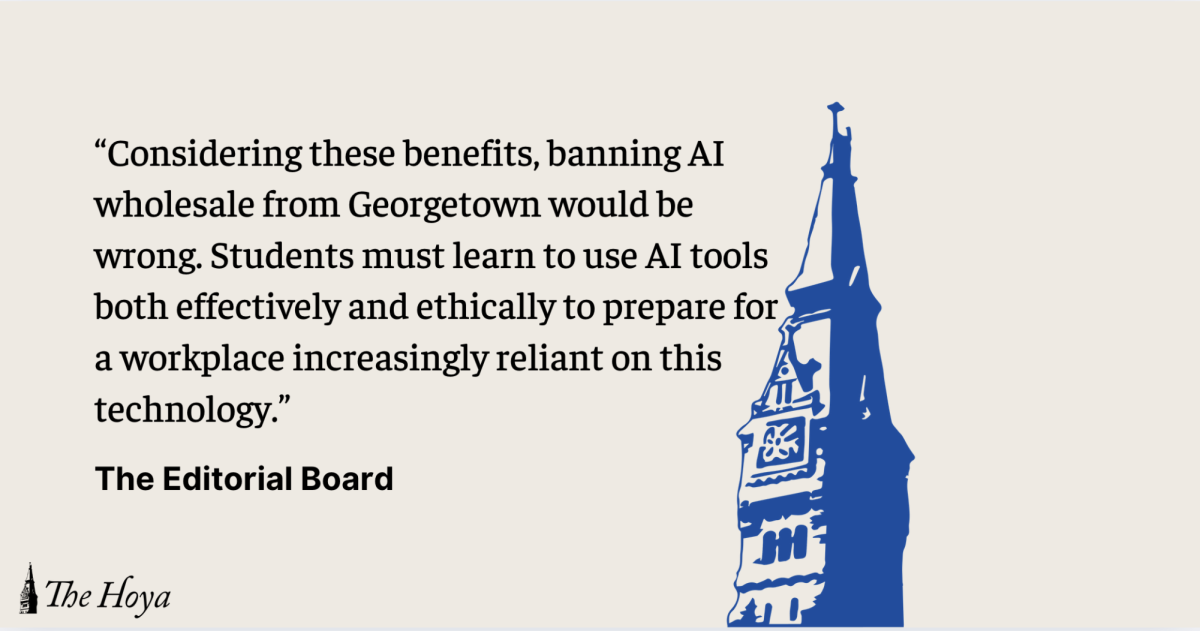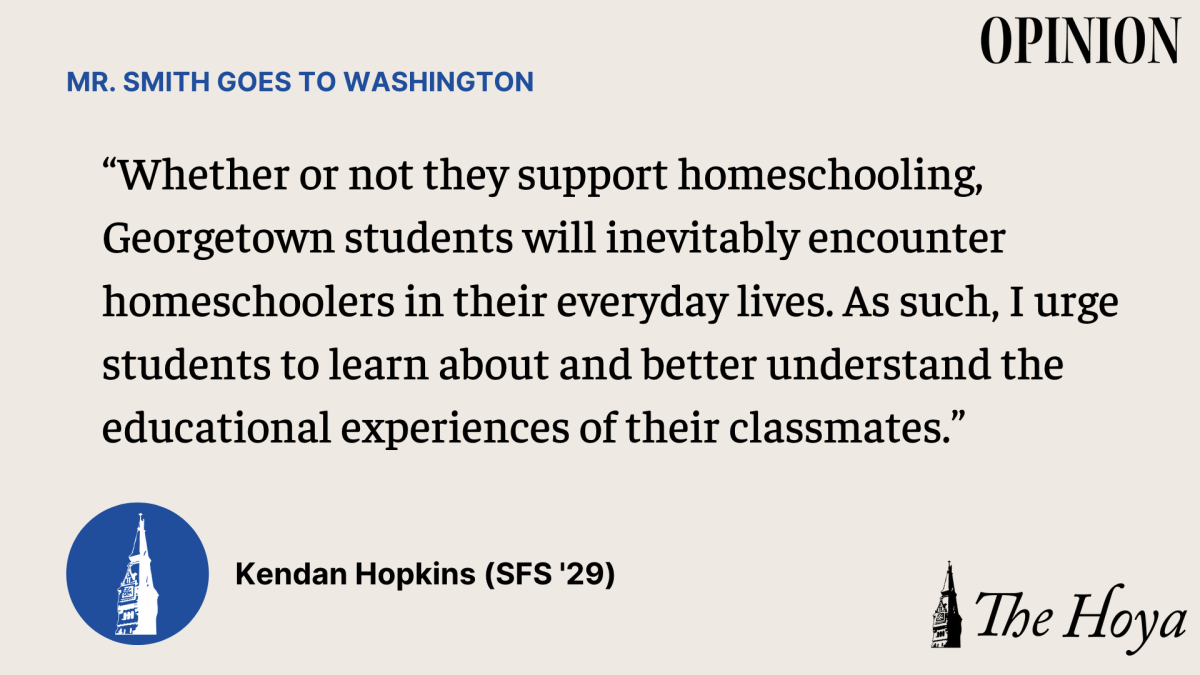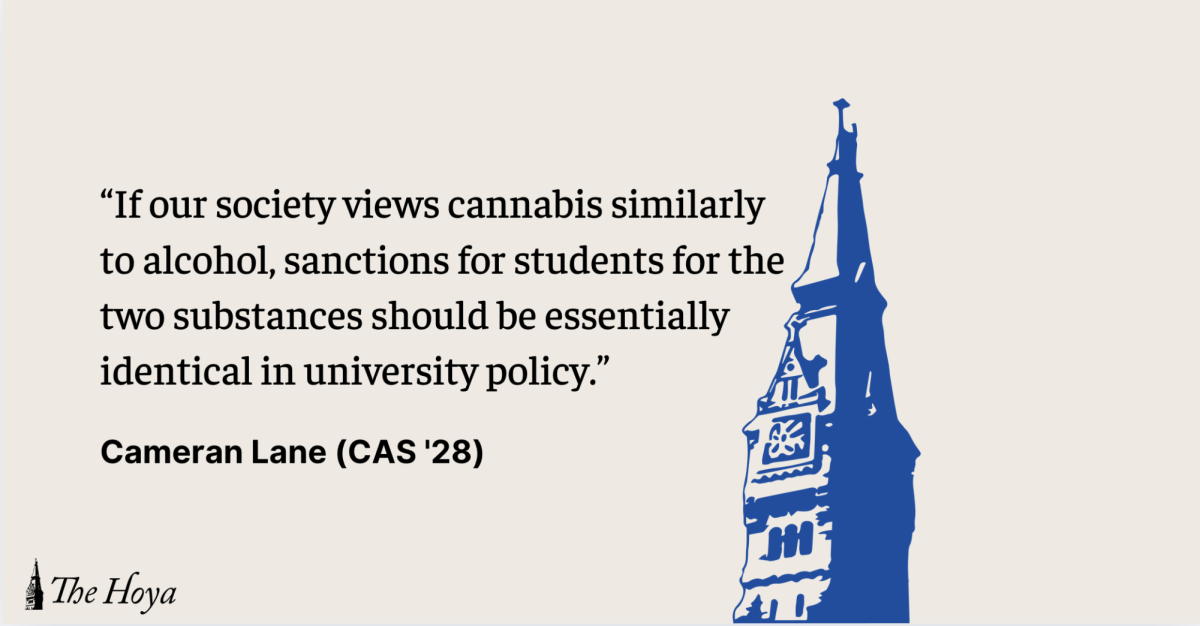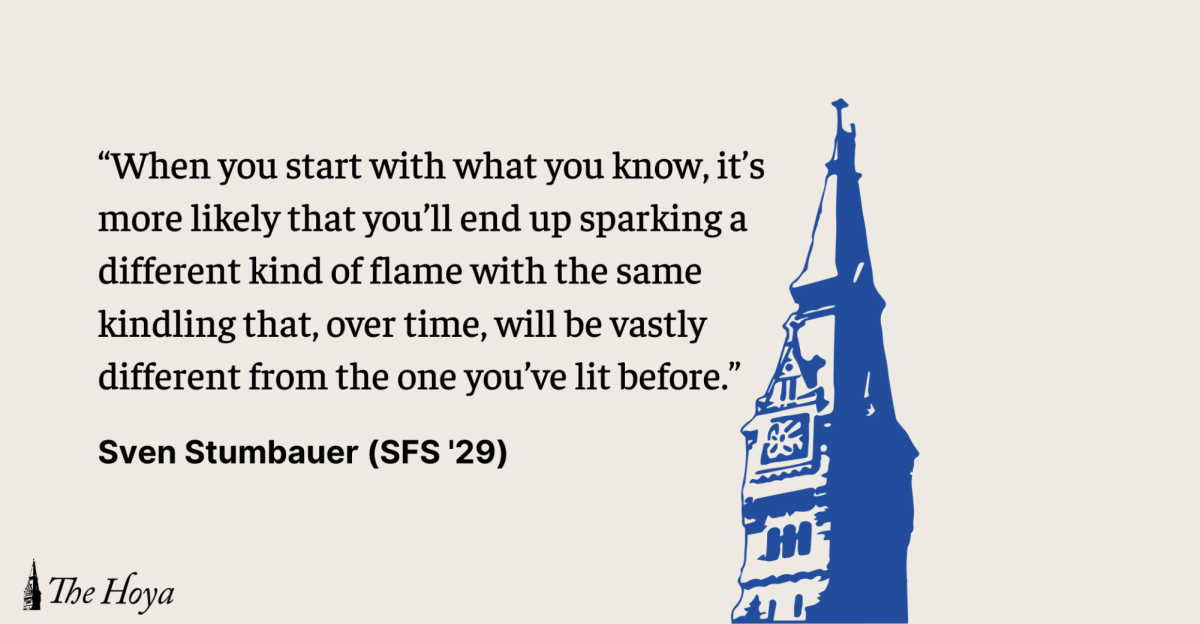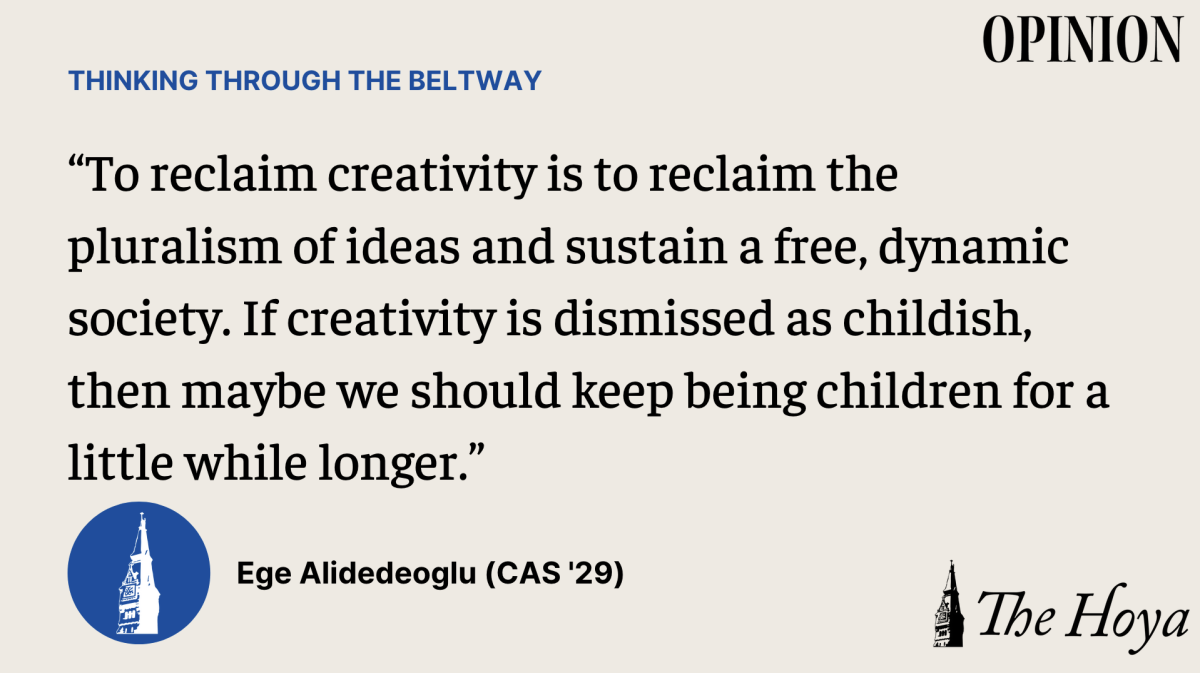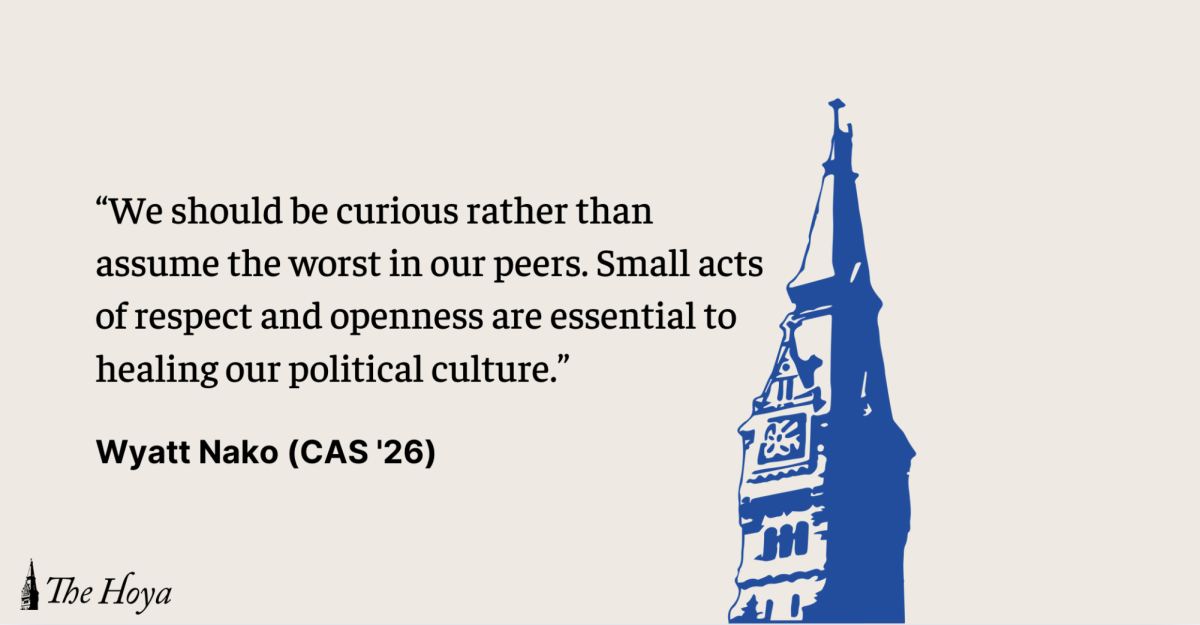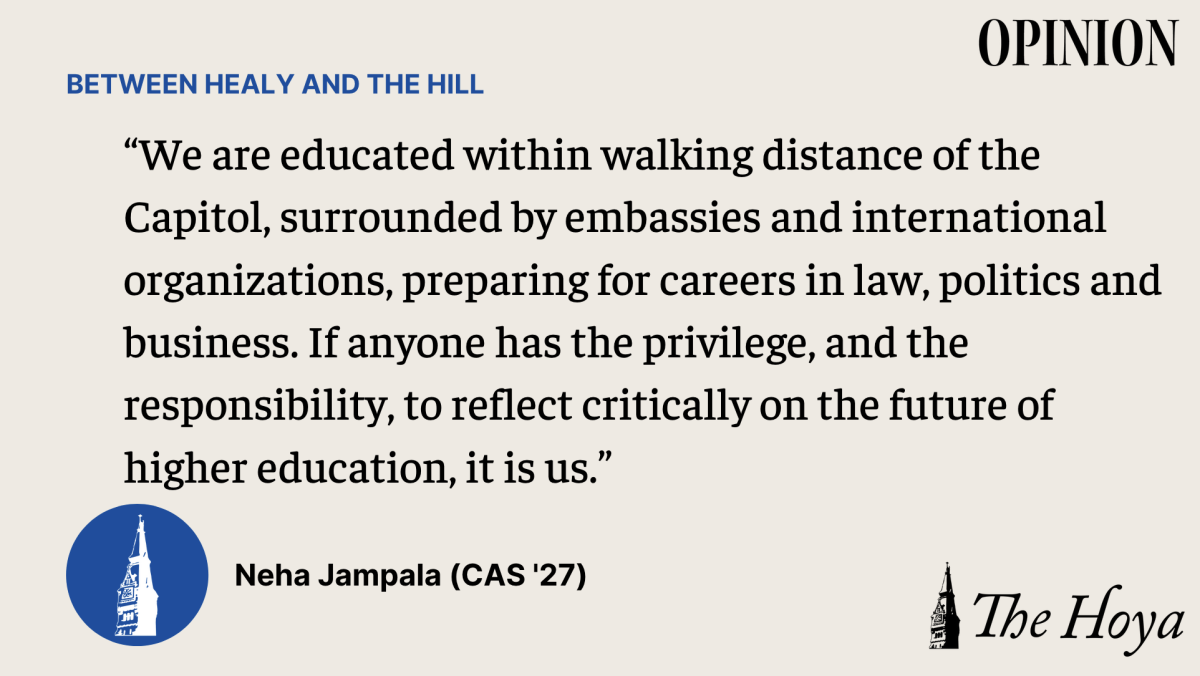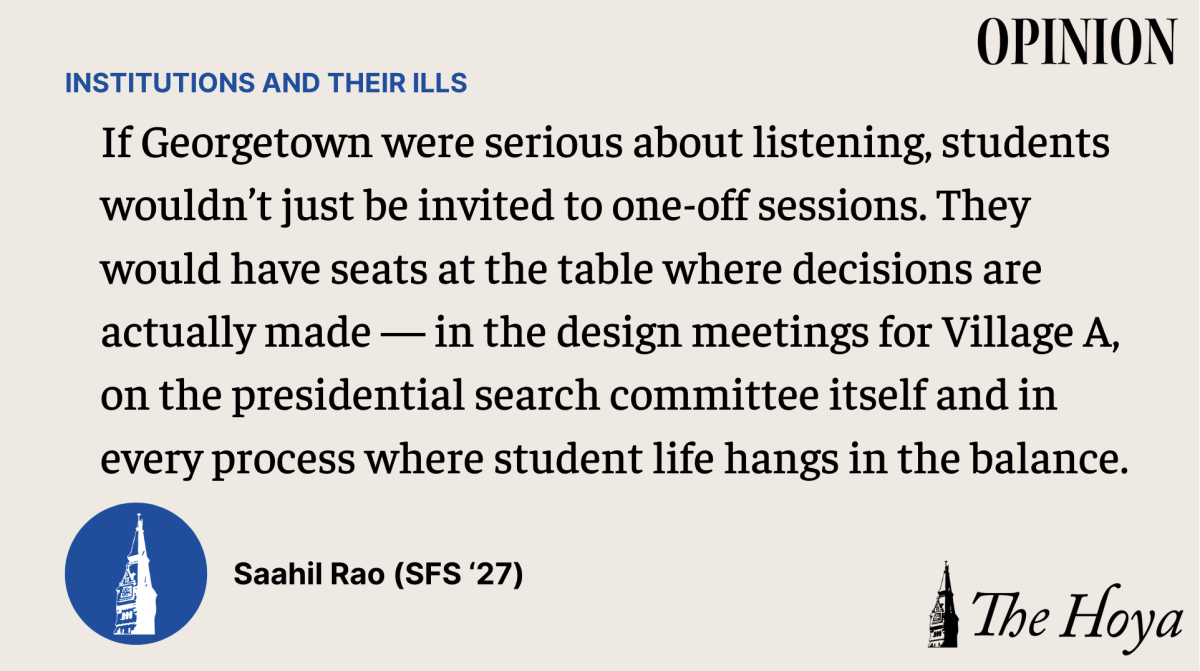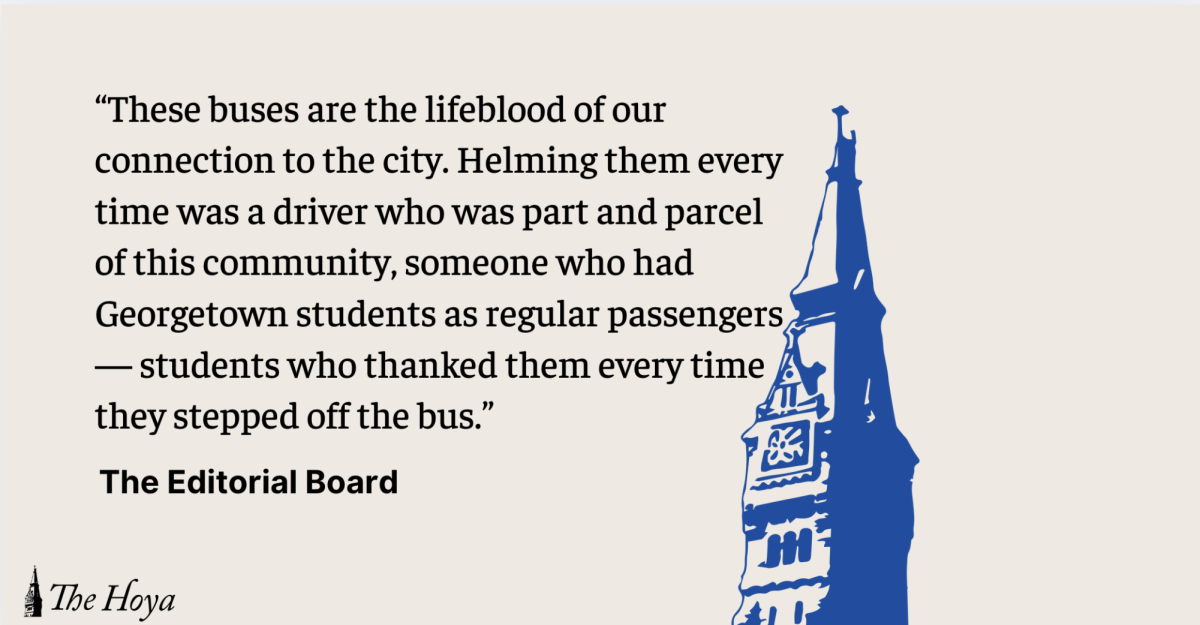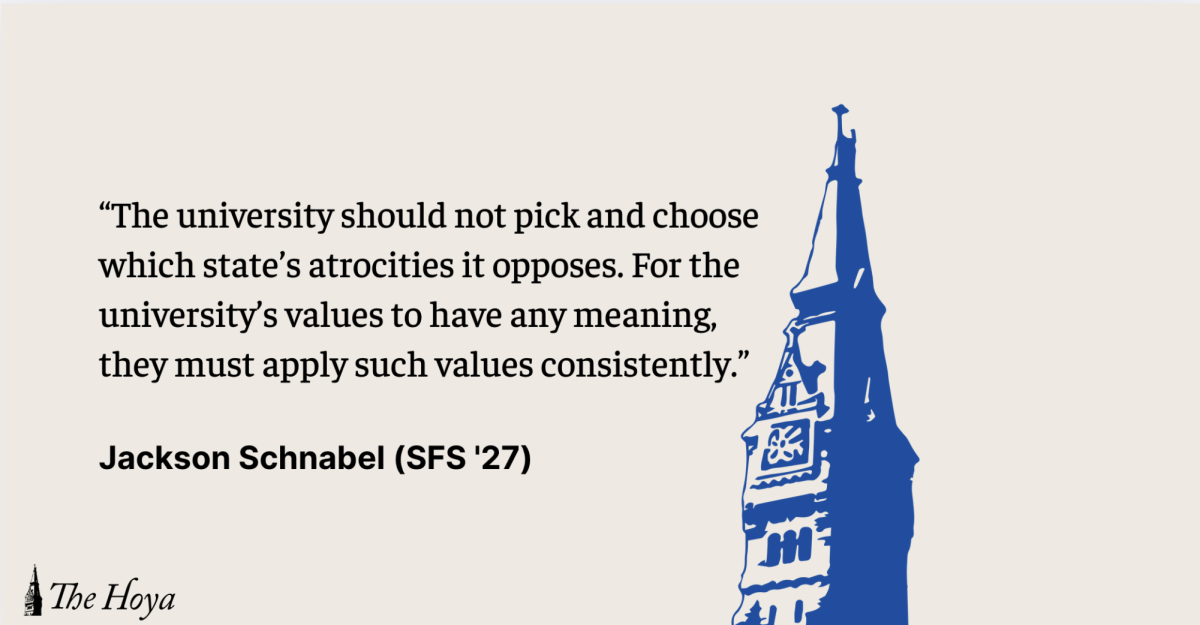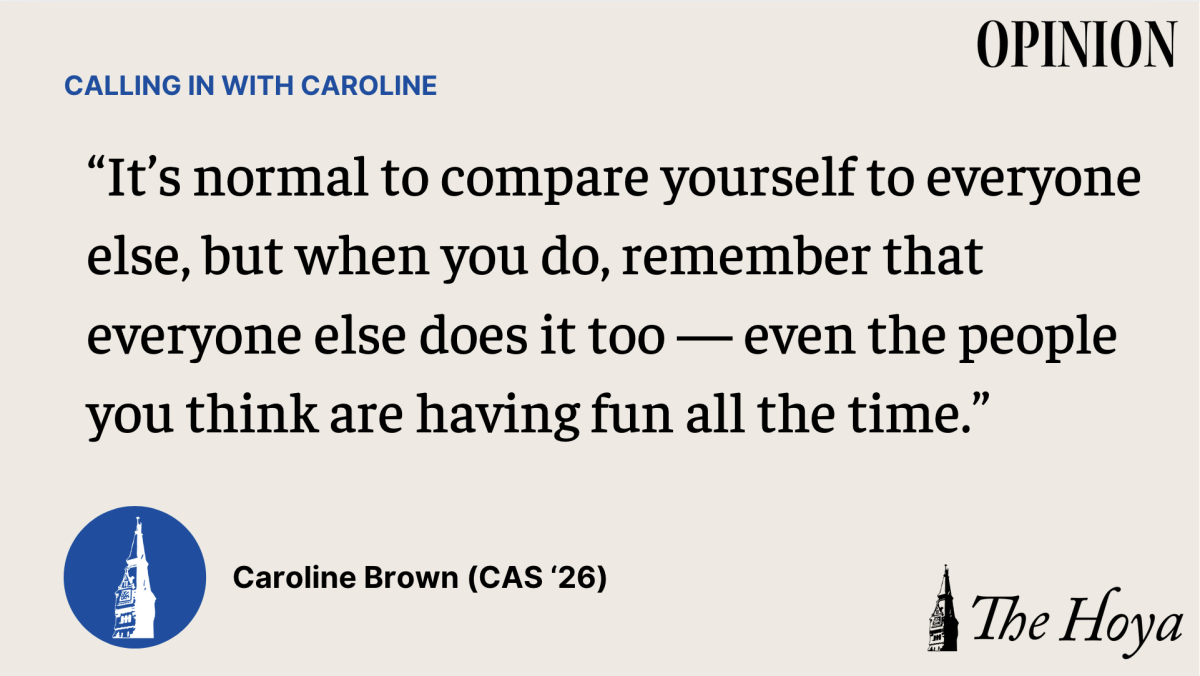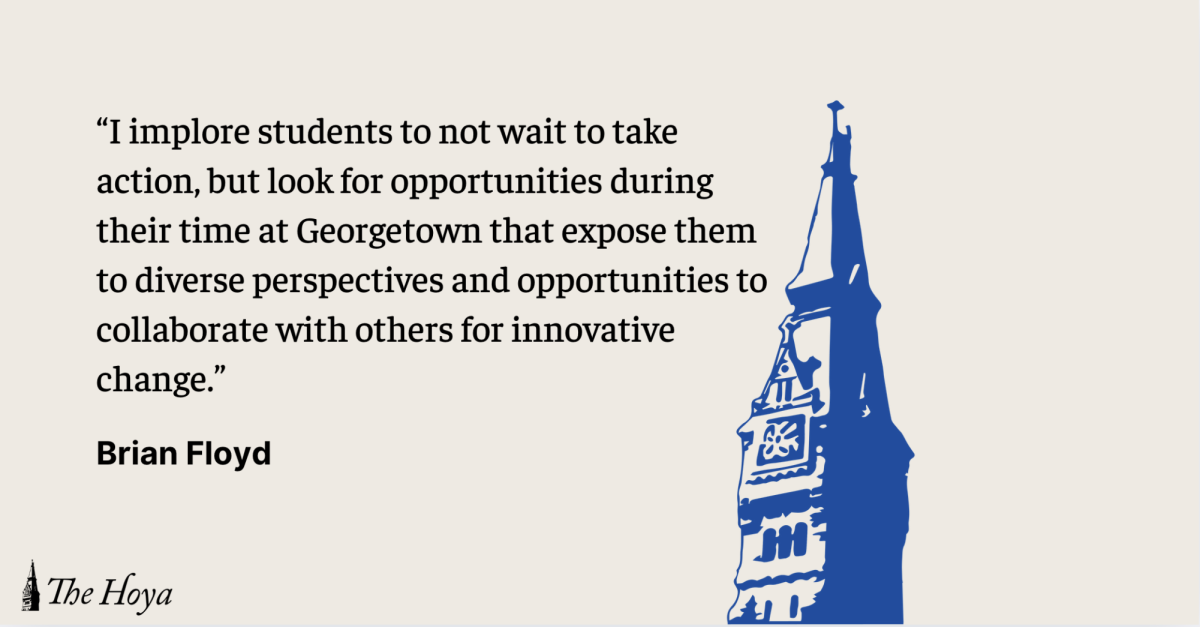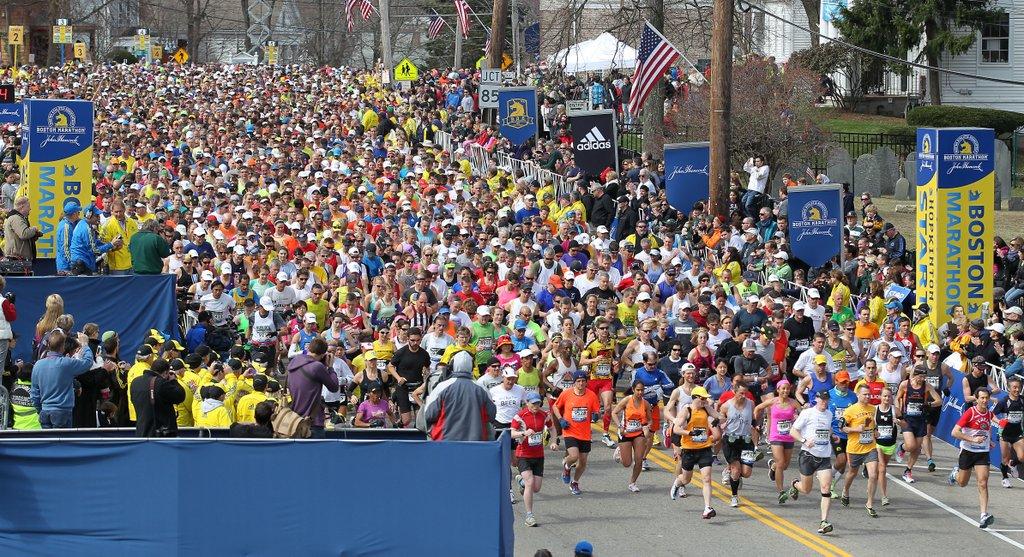
I grew up watching thousands of marathoners race through my town every April. Mile 13 is a few blocks down the road, so by the time runners pass my street in Wellesley they know that they’ve made it halfway to Boston.
Most people look exhilarated, but others are more apprehensive. They know they will have to complete that entire distance once over to reach the finish line in Copley Square. I handed out orange slices and bananas from a neighbor’s yard and up close you can see the gratefulness in runners’ eyes as they stretch out an arm for a much-needed energy boost, or how strangers’ faces light up when spectators yell out the name they’ve written across their shirt.
Today, I’ll be running the 118th Boston Marathon in a Georgetown tank alongside my friend from Boston College. I can’t wait to hear people yelling encouragement for the two runners with blue and grey/maroon and gold ribbons in their ponytails.
Running Boston, the oldest annual marathon in the world, as an official entrant is a dream. I attended school in Wellesley my entire life, competed in track and cross-country meets at local high schools along the route and still make it to at least a couple Red Sox games at Fenway (Mile 25) in the handful of weeks I’m home in between summers and semesters at Georgetown.
Although it was news to me freshman year, the fact that Patriots Day — Marathon Monday — is not a national holiday means that I’ve missed the marathon ever since coming to Georgetown, and that I was sitting in Lau when I first heard about the explosions last year. I abandoned my homework and started refreshing the homepages of local news sites and texting friends from Northeastern who were volunteering at the finish line. My stomach hurt; it felt wrong to be so far away. The relief and satisfaction following the bomber’s capture did not dispel the sense of outrage shared by the Boston community.
My friends at Georgetown know to shut me down before I can launch off on another speech about how Boston is the best city in the world, but I can’t think of anything more emblematic than the throngs of spectators in Red Sox caps and Bruins shirts that line the streets throughout the entire course, shouting encouragement at runners pushing themselves to the limit, cheering for so long that most people are hoarse the next day. It’s a rowdy celebration of a sports event held as sacred, a bit manic — very Boston. For most Bostonians the marathon bombing felt like an assault on a defining tradition, but also a brutal underestimate of the tenacity of a city that boasts only half-ironically about “inventing America.”
Today, Boston is synonymous with the pinnacle of achievement for runners throughout the world, but when the race was created it was a celebration of amateurs, people who were so dedicated to running they endured 20-mile training runs throughout the New England winter.
Now, obtaining an official entry is so difficult runners will write dozens of essays in the hopes of obtaining a coveted charity bib with its $4000 minimum fundraising pledge. I’m thrilled to have surpassed my fundraising goal as a charity runner for Wellesley’s equal opportunity education program; preparing for the race itself feels like a way to acknowledge why I’ll always be proud of my home community.
I’ve never been fully onboard with “Boston Strong,” just because I don’t think we need to hashtag or retweet a catchphrase to prove anything about our city. We’ll just run, yell and sweat, this Patriots Day, April 21, like we always have and always will.
While I’m excited to have reached my $4000 fundraising pledge for METCO, a program that transports low-income Boston students to Wellesley public schools from kindergarten through high school, I would like to raise as much money for a great cause as I can! You can donate to my fundraising page at https://www.firstgiving.com/fundraiser/BoJulie/friends-of-wellesley-metco-marathon-fundraiser
Bo Julie Crowley is a junior in the College.



